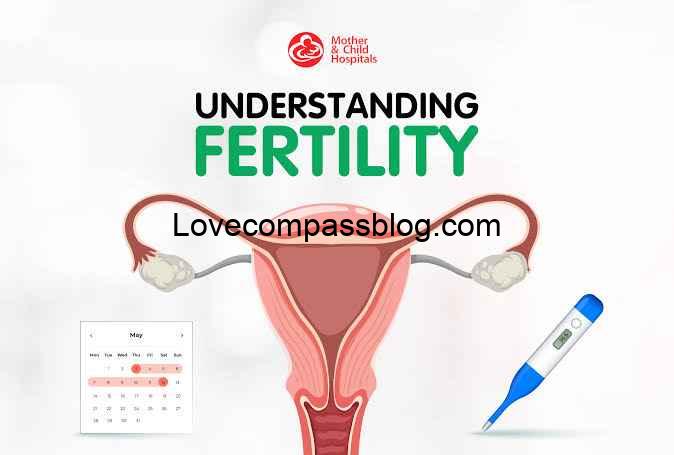Navigate the Challenges of Infertility as a Couple

Infertility is a deeply personal and often challenging experience for many couples. The journey involves emotional struggles, medical treatments, and significant lifestyle adjustments. It can affect every aspect of a relationship, from communication to intimacy. However, with the right support and resources, couples can navigate these challenges together, building resilience and maintaining a strong bond. This guide provides a thorough exploration of infertility, offering insights and practical advice on how to cope and thrive as a couple facing infertility.
Understanding Infertility

Definition and Causes of Infertility
Infertility refers to the inability to conceive after 12 months of regular, unprotected intercourse. It can be caused by a variety of factors affecting either partner. In women, common causes include ovulation disorders, which may be linked to hormonal imbalances or conditions like polycystic ovary syndrome (PCOS). Blocked fallopian tubes, often due to infections or surgeries, can also prevent conception. Endometriosis, where tissue similar to the lining inside the uterus grows outside of it, can lead to infertility by distorting reproductive organs.
For men, infertility is frequently associated with low sperm count or poor sperm motility. These issues can result from lifestyle factors, such as smoking, excessive alcohol consumption, or prolonged exposure to heat or toxins. Structural problems, such as varicoceles (enlarged veins within the scrotum), can also impede sperm production or function. Understanding these causes is essential for seeking appropriate medical advice and exploring treatment options.
Emotional and Psychological Impact of Infertility
The emotional impact of infertility is profound and multifaceted. Couples often experience a range of emotions, including sadness, frustration, and guilt. These feelings can stem from a sense of loss or failure, especially if societal or cultural pressures to conceive are strong. The repeated disappointment of negative pregnancy tests or failed treatments can lead to anxiety, depression, and even relationship strain.
Moreover, infertility can disrupt social interactions. Friends and family may unintentionally say hurtful things, or couples might feel isolated when others around them are having children. The emotional weight of infertility can be heavy, and without proper support, it may lead to a breakdown in communication and intimacy within the relationship.
Coping with Infertility as a Couple

Emotional Support for Infertile Couples
Emotional support within a relationship is crucial during the journey of infertility. Couples must prioritize each other’s emotional well-being by practicing empathy, patience, and understanding. It’s important to recognize that each partner may cope differently—one may be more vocal about their feelings, while the other might internalize their pain.
Creating an environment where both partners feel safe to express their emotions is vital. This might involve setting aside time to talk about feelings, fears, and hopes without interruption. Actively listening to each other, without offering immediate solutions or dismissing feelings, can reinforce the emotional connection and provide comfort.
Communication Strategies for Couples
Effective communication is the cornerstone of any strong relationship, particularly when dealing with infertility. Clear, honest, and respectful conversations about your emotions, treatment options, and future plans are essential. It’s important to discuss not only the physical aspects of infertility but also the emotional toll it takes.
One helpful strategy is to establish “check-in” moments where both partners can share their current feelings and concerns. This routine ensures that both partners stay connected and aware of each other’s emotional state. When discussing sensitive topics, it can be beneficial to use “I feel” statements, which focus on personal feelings rather than assigning blame or creating defensiveness.
Managing Infertility Emotions
The emotional challenges of infertility are significant and can vary greatly between individuals. Depression, anxiety, and stress are common reactions. Managing these emotions requires proactive strategies. Physical activity, such as regular exercise, can help reduce stress and improve mood by releasing endorphins. Mindfulness practices, including meditation or deep breathing exercises, can also provide relief by helping couples stay grounded in the present moment.
In addition to these individual strategies, couples should seek out activities that bring joy and relaxation to both partners. Whether it’s a shared hobby, a weekly date night, or simply spending quiet time together, these moments of connection can help alleviate stress and reinforce the bond between partners.
Grief Counseling and Finding Peace with Infertility
Infertility often involves grieving the loss of the future a couple envisioned, which might include biological children or a specific family timeline. This grief can be complex, encompassing both immediate and long-term emotional pain. Grief counseling can be a valuable resource for couples as they work through these emotions.
A grief counselor can help couples process their feelings, understand the stages of grief, and develop coping mechanisms. Counseling provides a space to explore different outcomes and paths forward, whether that includes pursuing alternative family-building options like adoption or deciding to live child-free. Finding peace with infertility doesn’t mean giving up on happiness; it involves redefining what happiness and fulfillment look like for you as a couple.
Navigating Relationship Dynamics

Dealing with Infertility in Marriage
Infertility can be a major source of stress in a marriage. The pressure to conceive, along with the physical and emotional demands of fertility treatments, can lead to frustration and conflict. It’s common for couples to experience a range of marital challenges during this time, including feelings of resentment, guilt, or inadequacy.
To navigate these challenges, it’s crucial to maintain a partnership mentality. Infertility should not be seen as one partner’s problem; instead, it’s a challenge to be faced together. Couples can strengthen their marriage by focusing on teamwork, mutual support, and shared decision-making. Seeking outside help, such as marriage counseling, can also provide tools to address and resolve conflicts, keeping the relationship strong.
Overcoming Infertility Challenges Together
Facing infertility as a united team is essential for overcoming its challenges. This means sharing the physical and emotional burdens equally, even if one partner is more directly affected by the treatments or diagnosis. It also involves making joint decisions about the future, whether that means continuing with medical treatments, considering adoption, or choosing to live without children.
Couples should actively seek ways to support each other during difficult times. This might involve attending medical appointments together, discussing treatment options openly, or simply being there to listen when emotions run high. Overcoming these challenges together can deepen the connection between partners and build a stronger, more resilient relationship.
Marital Support and Counseling
Infertility can bring about significant stress and tension within a marriage. Marital counseling provides a structured environment where couples can explore their feelings, improve communication, and develop strategies for dealing with the challenges of infertility. A counselor can help couples navigate difficult conversations, address unresolved issues, and reinforce the emotional bond that might be strained by the infertility journey.
Counseling can also provide a space for couples to discuss their future, including whether they want to explore other family-building options or how they plan to move forward if treatments are unsuccessful. Marital counseling is not just about solving problems but about equipping couples with the tools to face challenges together, fostering a stronger, more supportive relationship.
Seeking Professional and Peer Support

Infertility Counseling for Couples
Infertility counseling is a specialized service designed to address the unique challenges that come with trying to conceive. Counselors who specialize in fertility issues can provide valuable guidance and support, helping couples navigate the emotional, psychological, and relational aspects of infertility.
In infertility counseling, couples can explore their feelings about the diagnosis, discuss their fears and hopes, and work through any conflicts that arise from the stress of infertility. Counselors can also provide education about the various treatment options available and help couples make informed decisions about their next steps. This type of counseling is particularly beneficial for couples who are feeling overwhelmed or uncertain about how to proceed.
Support Networks for Infertile Couples
Support networks, both in-person and online, offer an invaluable resource for couples struggling with infertility. These networks provide a community of people who understand the unique challenges of infertility, offering emotional support, advice, and encouragement. Engaging with others who have similar experiences can reduce feelings of isolation and provide a sense of belonging.
In-person support groups often meet regularly and provide a safe space for couples to share their stories and offer support to one another. Online communities and forums offer the same benefits, with the added convenience of connecting from home. These networks can be a lifeline for couples, providing not only emotional support but also practical advice on navigating the medical and emotional aspects of infertility.
Infertility Support Group Options
There are many different types of infertility support groups available, each catering to specific needs. Some groups are general, open to anyone dealing with infertility, while others focus on specific aspects, such as male infertility or the emotional impact of infertility on women. Many groups are free and meet regularly, either in person or online.
Male infertility support groups, for example, provide a space for men to discuss their unique challenges and receive support from others who understand what they are going through. These groups can be particularly important for men who may feel isolated or reluctant to talk about their infertility with friends or family.
Infertility Support Communities
Online infertility communities offer a wealth of resources and support for couples dealing with infertility. These communities include forums, blogs, and social media groups where couples can connect, share their experiences, and seek advice. The anonymity of online forums can be particularly appealing for those who are not comfortable discussing their infertility in person.
These communities often provide access to a wide range of information, from personal stories and coping strategies to medical advice and treatment options. Engaging with these communities can help couples feel less alone and more empowered to take control of their infertility journey.
Specialized Support: Male and Female Infertility

Male Infertility: Understanding and Support
Male infertility is a significant factor in about 40-50% of infertility cases. Despite this, it often receives less attention, leading to feelings of isolation or inadequacy in men. Understanding the causes of male infertility is the first step towards addressing it. Factors such as low sperm count, poor sperm motility, or structural issues like varicoceles can impact fertility. Lifestyle factors, including excessive alcohol consumption, smoking, and obesity, also play a crucial role.
Support for male infertility involves not just medical treatment but also emotional and psychological care. Men may find it challenging to express their emotions or seek help due to societal expectations of masculinity. It’s important for couples to recognize this dynamic and create an environment where men feel comfortable discussing their concerns. Joining a male infertility support group can also be incredibly beneficial. These groups provide a space for men to share their experiences and gain support from others facing similar challenges.
Female Infertility: Coping and Treatment Options
Female infertility can result from a variety of factors, including hormonal imbalances, blocked fallopian tubes, or conditions like endometriosis or polycystic ovary syndrome (PCOS). Each of these issues requires specific medical interventions, ranging from medications that stimulate ovulation to surgeries that correct structural problems.
Coping with female infertility involves managing both the physical and emotional aspects. Women may feel an intense sense of pressure or guilt, especially if they perceive their infertility as letting down their partner. It’s important to seek out both medical and emotional support. Fertility treatments such as IVF, IUI, or hormone therapies can offer hope, but they also come with their own set of emotional challenges. Women may benefit from individual counseling or support groups where they can discuss their feelings and experiences in a supportive environment.
The Role of Medical Professionals in Infertility Treatment
Medical professionals play a critical role in guiding couples through the infertility journey. Fertility specialists can diagnose the causes of infertility and recommend appropriate treatments, ranging from lifestyle changes and medications to advanced procedures like IVF. It’s essential to work closely with your healthcare provider to understand your options and make informed decisions.
Regular consultations and follow-ups with a fertility specialist can help monitor progress and make adjustments to treatment plans as needed. Couples should also consider seeking second opinions if they feel uncertain about their diagnosis or treatment options. Building a trusting relationship with your healthcare team is key to navigating the complexities of infertility treatments.
Emotional and Psychological Care for Infertility
While medical interventions are crucial, the emotional and psychological toll of infertility should not be overlooked. Chronic stress, anxiety, and depression are common among couples dealing with infertility. Engaging with mental health professionals who specialize in infertility can provide essential support. Therapists can help couples develop coping strategies, improve communication, and maintain a positive outlook despite setbacks.
It’s also important to consider the impact of infertility on self-esteem and identity. Couples may struggle with feelings of inadequacy or worthlessness, which can strain the relationship. Addressing these issues through therapy or support groups can help restore confidence and foster a stronger bond between partners.
Alternative Family-Building Options

Adoption as a Path to Parenthood
For couples who are unable to conceive, adoption offers a meaningful path to parenthood. The decision to adopt can be difficult, especially if the couple has spent years trying to conceive. However, adoption can provide a sense of fulfillment and the opportunity to build a family in a different, but equally rewarding, way.
The adoption process varies depending on the type of adoption chosen—whether domestic, international, or foster care adoption. Each comes with its own set of legal and emotional considerations. Couples should research thoroughly and consult with adoption agencies to understand the requirements and procedures involved. Emotional preparation is also crucial, as the process can be lengthy and sometimes unpredictable.
Exploring Surrogacy as an Option
Surrogacy is another option for couples unable to conceive naturally. In a surrogacy arrangement, another woman carries and delivers a baby for the intended parents. This can be done through traditional surrogacy, where the surrogate’s egg is used, or gestational surrogacy, where the embryo is created using the intended mother’s egg and the father’s sperm, then implanted into the surrogate.
Surrogacy involves complex legal, ethical, and emotional factors. It’s essential to work with reputable surrogacy agencies and legal professionals to navigate these complexities. Couples considering surrogacy should also be prepared for the emotional journey, which includes developing a relationship with the surrogate and managing the unique dynamics that this arrangement involves.
Egg and Sperm Donation
Egg or sperm donation is another viable option for couples facing infertility. This method involves using donated eggs or sperm to achieve pregnancy through assisted reproductive technologies like IVF. Couples may choose donation due to genetic concerns or issues like low sperm count or poor egg quality.
Selecting a donor can be an emotional process, as couples must consider factors such as genetic history, physical characteristics, and whether to choose an anonymous or known donor. It’s important to seek counseling to address any emotional concerns that arise during this process. Donor-assisted conception can bring its own challenges, but it also offers hope for couples looking to expand their family.
Living Child-Free: Acceptance and Fulfillment
For some couples, the path to parenthood may end without children. Choosing to live child-free can be a fulfilling decision, though it may require significant emotional adjustment. Society often places high value on having children, which can make this decision feel isolating or counter-cultural.
Acceptance of a child-free life involves redefining personal and relationship goals. Couples may choose to focus on other aspects of their lives, such as careers, travel, hobbies, or community involvement. Finding fulfillment outside of parenthood requires a shift in perspective, but it can lead to a rich and rewarding life together.
Conclusion
Infertility is a challenging journey that affects many aspects of a couple’s life, from emotional well-being to relationship dynamics. However, by seeking support, maintaining open communication, and exploring all available options, couples can navigate these challenges together. Whether through medical treatments, alternative family-building options, or finding fulfillment in a child-free life, there are many paths to happiness and contentment. The key is to remain united and supportive, ensuring that the relationship remains strong and resilient through the process.





